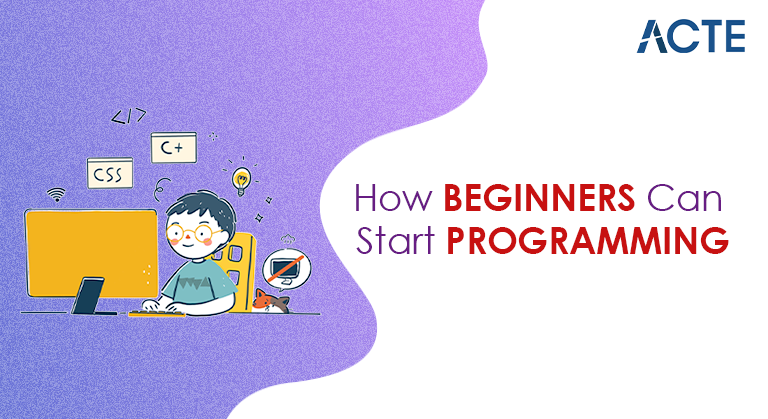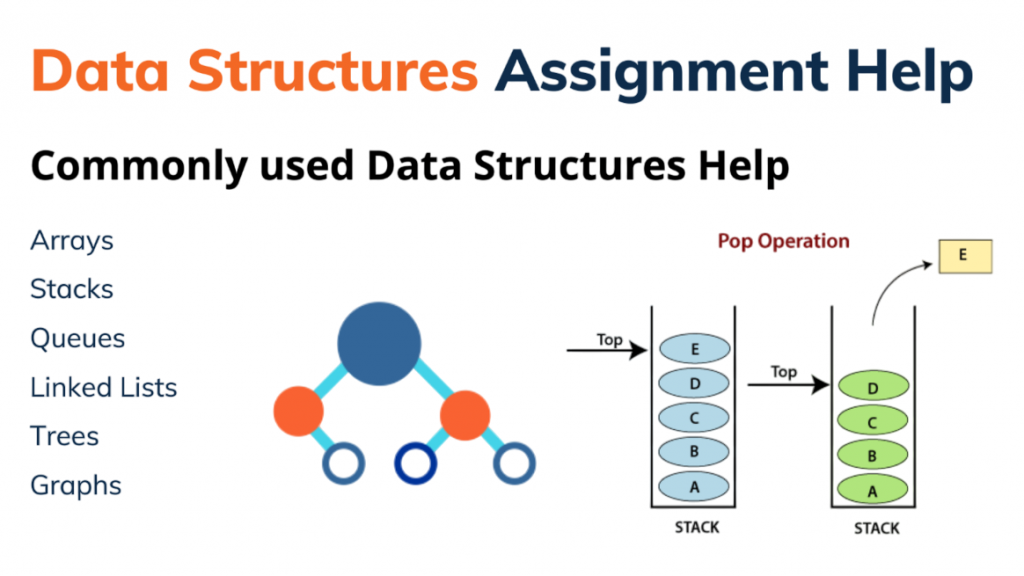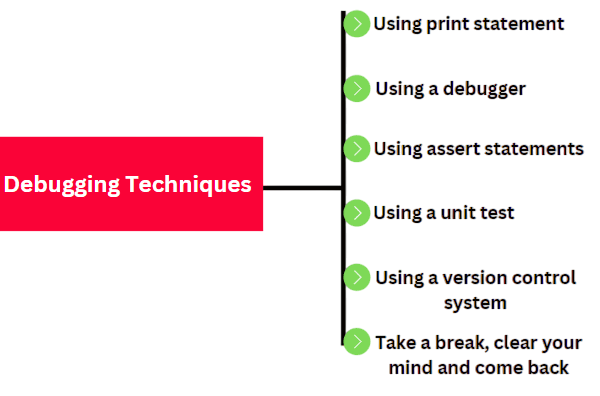
- Introduction to Programming and Its Importance
- Choosing the Right Programming Language
- Setting Up Your Development Environment
- Understanding Syntax, Variables, and Data Types
- Using Conditional Statements and Loops
- Writing and Organizing Functions
- Working with Arrays, Lists, and Basic Data Structures
- Handling Errors and Debugging Code
- Building Your First Simple Project
- Using Version Control (Git & GitHub Basics)
- Conclusion
Introduction to Programming and Its Importance
Programming is the act of instructing a computer to perform tasks through a sequence of commands written in a specific language. In today’s digital world, programming is the backbone of innovation. From simple calculators to complex artificial intelligence systems, programming enables individuals and organizations to solve real-world problems efficiently. Learning to code from scratch not only boosts logical thinking but also opens up vast career opportunities in software development, data science, cybersecurity, automation, and more. To accelerate this journey with hands-on expertise, exploring Python Training reveals how mastering Python’s syntax, libraries, and project workflows empowers learners to build impactful solutions across industries. Whether you’re aiming to build your own application, automate tasks, or pursue a professional software development career, understanding how to start coding from the ground up is essential. It may seem intimidating initially, but with consistent practice and the right resources, anyone can become a capable programmer.
Interested in Obtaining Your Python Certificate? View The Python Developer Course Offered By ACTE Right Now!
Choosing the Right Programming Language
Choosing the right programming language is the first step on your coding journey. If you’re just starting out, Python is an excellent choice because it has clear syntax and is popular for data science, automation, and web development. If you’re interested in creating dynamic websites, JavaScript is essential as it works well for both frontend and backend tasks. For those looking into software engineering or mobile development, Java and C++ offer strong options due to their object-oriented features and performance capabilities. To understand how Java simplifies complexity through modular design, exploring What is Abstraction in Java reveals how hiding implementation details and exposing only essential functionalities leads to cleaner, more maintainable code in large-scale applications. Java excels in building Android apps and enterprise software, while C++ is perfect for game development and system programming. Other languages like Ruby, PHP, and Swift can also be considered based on your specific interests. By identifying your goals, you can select the language that best fits your needs and start building your skills effectively.
Setting Up Your Development Environment
After selecting a language, the next step is setting up a development environment. This typically involves installing a text editor or an Integrated Development Environment (IDE). For Python, PyCharm or VS Code are great options. Java developers might prefer IntelliJ IDEA or Eclipse. To build efficient programs beyond syntax and setup, exploring Important Data Structures and Algorithms reveals how mastering arrays, stacks, queues, trees, and sorting techniques enhances performance, scalability, and problem-solving across any language.
Some useful tools include:
- Code Editors: VS Code, Sublime Text, Atom.
- IDEs: PyCharm, IntelliJ IDEA, NetBeans, Eclipse.
- Compilers/Interpreters: Depending on the language (e.g., Python interpreter, JDK for Java).
- Command Line Interface: Knowing how to use the terminal/command prompt is essential.
Online platforms like Replit, Glitch, or CodePen allow you to code without installing software locally, which is great for learners.
Gain Your Master’s Certification in Python Developer by Enrolling in Our Python Master Program Training Course Now!
Understanding Syntax, Variables, and Data Types
Every programming language has its syntax and the rules that define how programs should be written. Understanding syntax is fundamental to writing error-free code. Begin by learning how to declare variables, assign data types, and use operators. To compare how different languages approach these fundamentals, exploring Go vs Python reveals how Go emphasizes simplicity and performance, while Python focuses on readability and versatility helping learners choose the right tool for their development goals.
Typical data types include:
- Integers: Whole numbers.
- Floats: Decimal numbers.
- Strings: Textual data.
- Booleans: True or False values.
You’ll also work with operators (e.g., +, -, *, /) to perform arithmetic and logical operations. Practice writing simple statements that manipulate variables to gain confidence.
Using Conditional Statements and Loops
Conditional statements are used to make decisions in your programs. You’ll start with if, else if, and else. These allow the program to choose between different paths of execution based on certain conditions. To master these control structures and apply them in real-world scenarios, exploring Python Training reveals how structured learning in Python helps you build dynamic applications, automate logic flows, and strengthen your programming fundamentals.
Loops are used for repeated execution:
- For Loop: Iterates over a sequence like a list or a range of numbers.
- While Loop: Continues as long as a condition is true.
Learn how to combine loops and conditions to build logic like number guessers, calculators, or prime number checkers.
Are You Preparing for Python Jobs? Check Out ACTE’s Python Interview Questions and Answers to Boost Your Preparation!
Writing and Organizing Functions
Functions are powerful tools that help you organize and reuse your code effectively. When you define a function, you create a specific set of instructions that carry out a particular task. You can use these functions repeatedly throughout your program. This practice cuts down on repetition, making your code cleaner and easier to read. In Python, you begin a function with the keyword “def.” To understand how functions interact with external services, exploring Soap vs Rest reveals how different API architectures handle data exchange highlighting the contrast between structured XML-based protocols and lightweight, flexible RESTful approaches. In Java, you use “public static.” You can also pass arguments to functions to customize their behavior and return values to get results from your operations. Mastering functions allows you to break down complex problems into smaller, manageable pieces. This way, you can tackle challenges step by step. With this skill, you’ll improve your programming abilities and write more efficient code.
Working with Arrays, Lists, and Basic Data Structures
Arrays and lists are essential tools for storing multiple values within a single variable. In programming languages like Python, lists can grow and shrink dynamically, allowing for flexible data management. In contrast, arrays in languages such as C/C++ or Java have a fixed size unless allocated dynamically.

Another important data structure is the dictionary (or map), which stores related information in key-value pairs, making data retrieval efficient. To work with such structures effectively, exploring Python IDEs and Code Editors reveals how the right development environment featuring syntax highlighting, auto-completion, and debugging tools can streamline coding workflows and enhance productivity when handling complex data operations. Additionally, stacks and queues help organize data with specific rules; stacks operate on a last-in-first-out (LIFO) basis, while queues follow a first-in-first-out (FIFO) approach. Sets are also noteworthy, as they consist of unordered collections of unique elements, which can be very useful in various situations. Understanding these data structures is vital for tackling intermediate to advanced coding challenges and is especially helpful during job interviews in the tech field.
Handling Errors and Debugging Code
Every programmer encounters errors. There are three main types: syntax errors, runtime errors, and logical errors. To understand how modern languages handle these issues efficiently, exploring Go Programming Language reveals how Go’s simplicity, strong typing, and built-in error handling mechanisms help developers write clean, reliable code with minimal overhead.

- Syntax Errors: Mistakes in the code format.
- Runtime Errors: Errors during program execution (e.g., divide by zero).
- Logical Errors: The program runs but gives incorrect results.
Helpful debugging techniques:
- Print statements for tracing logic.
- Debugging tools in IDEs.
- Try-except (in Python) or try-catch (in Java/C++) for error handling.
Consistent debugging will sharpen your logical thinking and reduce frustration.
Building Your First Simple Project
Start small. Ideas for beginner projects include calculators, to-do list apps, simple games, or weather fetchers using APIs. To ensure your code behaves as expected across different contexts, exploring Python Scopes and Their Built-in Functions reveals how variable visibility and built-in tools like len(), range(), and type() help manage logic flow and simplify development in multi-layered projects.
- Calculator: Use inputs and functions.
- To-do List App: Handle user tasks with arrays/lists.
- Weather App: Fetch data using an API.
- Number Guessing Game: Use random numbers and loops.
Projects help solidify your learning. They also serve as portfolio items to showcase your skills to potential employers or clients.
Using Version Control (Git & GitHub Basics)
Python plays an important role in game development, especially for prototypes and 2D games. One of the most popular libraries for this is Pygame, which makes it easier to create games by providing tools for graphics, sound, and user input. While Python may not be the preferred choice for large AAA game studios because of performance issues, it excels in other areas. It is a great option for educational projects, hobbyists, and indie developers. To enhance game logic and output clarity in such projects, exploring Python String Formatting reveals how developers can control text layout, embed variables cleanly, and present dynamic content with precision making gameplay and debugging more intuitive. Its user-friendly nature allows developers to quickly test game mechanics and design logic, making it an excellent starting point for beginners who want to learn game development. Whether you’re building a simple arcade game or trying out game ideas, Python and Pygame offer the resources needed to bring your concepts to life.
Conclusion
Learning to code from scratch involves dedication, curiosity, and hands-on practice. From understanding syntax and logic to building real projects and using Git for version control, every step you take enhances your problem-solving abilities. To accelerate this journey with structured guidance, exploring Python Training reveals how mastering Python’s core concepts, libraries, and workflows empowers beginners to transition from basic coding to building scalable, real-world applications. With a strong foundation, access to modern resources, and a positive mindset, you can confidently progress from beginner to proficient coder. Start small, stay consistent, and enjoy the journey of turning ideas into functional software!





